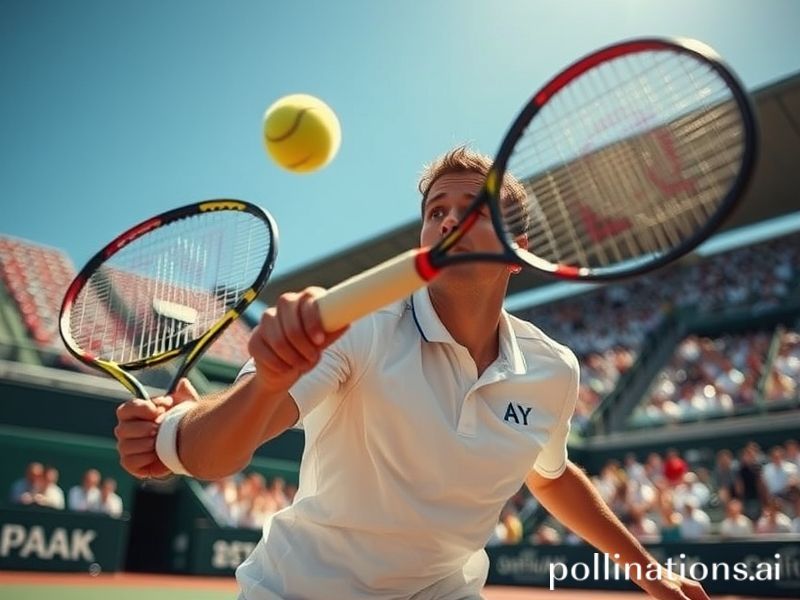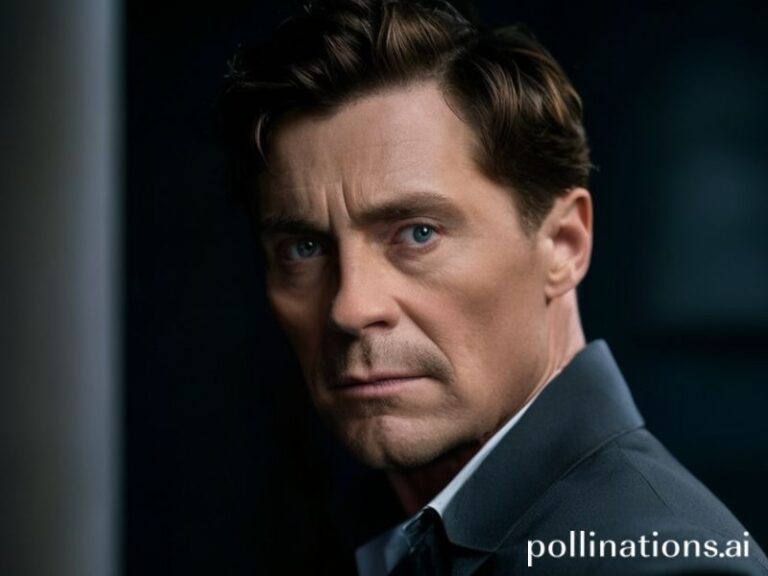Aleksandar Vukic: How Tennis’s Invisible Man Became a Global Glitch in the Superstar Matrix
Aleksandar Vukic: The Tennis Everyman Holding Up a Mirror to Our Elite-Obsessed World
By Our Correspondent, still recovering from another Grand Slam hangover
Paris—While the planet’s cameras were busy zooming in on the usual pantheon—your Djokovics, your Alcarazes, your carefully branded unicorns—Aleksandar Vukic slipped into the French Open draw like an uninvited plus-one who ends up drinking the bar dry. The 28-year-old Sydneysider, world No. 69, is the kind of player airline announcers mispronounce even when he’s standing right there. Yet for one humid afternoon on Court 14, a postage-stamp annex fertilized by equal parts clay and existential dread, Vukic staged a minor insurrection. He pushed seventh seed Stefanos Tsitsipas to four sets, forcing connoisseurs of chaos to contemplate a terrifying proposition: what if mediocrity is simply excellence with worse PR?
Global implications, you ask? Start with the rankings algorithm, that cold-blooded Excel sheet determining who gets the chartered Gulfstreams and who rides coach beside a shrieking toddler. Vukic’s quarterfinal run last week in Lyon rocketed him 22 spots, triggering tremors from Monte Carlo’s racket-stringing salons to Shanghai’s shadow-betting parlors. Futures markets briefly froze; crypto bros who’d staked their last Dogecoin on “Tsitsipas in straights” contemplated window-leaping until reminded their condos lack opening panes for safety reasons. In an era when oligarchs treat super-yachts like Pokémon cards, Vukic’s sudden surge is a reminder that even the 1% of tennis can be mugged by a guy who still splits Airbnb costs with his physio.
The broader metaphor is almost too tidy: here stands the son of Serbian immigrants, raised on the hardcourts of suburban Sydney, wielding a stick manufactured in China, strung with polyester born from Qatari natural gas, coached via WhatsApp by a part-time philosopher in Belgrade. His biography is a United Nations of clichés, proving globalization works best when nobody notices. Watch him sweat through a five-setter and you’re witnessing the international supply chain in shorts: labor, capital, and raw ambition stitched together by a logo nobody can afford to buy outright.
Diplomatically, Vukic is a walking Rorschach test. Canberra claims him as proof Australia remains the land of “fair go,” even as its government deports Pacific Islanders for slower serve speeds. Serbia’s tabloids hail him as “our diaspora diamond,” conveniently forgetting he left before they could draft him into mandatory conscription or a turbo-folk music video. Meanwhile, the ATP’s marketing gnomes have already pre-cut a hype reel featuring didgeridoo remixes and Orthodox chant—cultural appropriation so efficient it could qualify for EU subsidies.
Yet the true poetry lies in the economics. Prize money at this level is a cosmic joke: Vukic’s €78,000 Lyon paycheck sounds sexy until you deduct 30% to his agent, 10% to the coach, 8% to the government, and an undisclosed tithe to the existential void. He remains one twisted ankle away from coaching wealthy juniors at a Dubai academy where the court fees could service Greece’s national debt. Compare that to the €200 million Paris St-Germain once paid for a single footballer whose primary skill is rolling on grass like a Victorian damsel, and you understand why tennis’s middle class is an endangered species kept alive by gluten-free pasta and delusion.
Still, Vukic persists, a one-man rebuttal to the tyranny of superstar culture. Every moonball he launches is a tiny act of resistance against the narrative that only gods matter. In a world where eight men own as much wealth as the poorer half of humanity, watching No. 69 threaten No. 7 feels like seeing a hedge-fund algorithm get pantsed by a kindergarten kid. It won’t collapse late-stage capitalism, but for two hours the scoreboard flashed the rarest of messages: “Talent Uncertain; Outcome Pending.” That, dear reader, is practically revolution.
When he finally netted a backhand to end it, Vukic grinned like a man who’d stolen the silverware and knew it. The crowd, mostly there for the sunshine, gave him a sympathy roar loud enough to drown out the stock-market notifications on their phones. He left the court waving not to cameras, but to a small section of Aussies who’d painted their chests with the Southern Cross—amateur astronomers and professional drunks, united in the belief that somewhere, somehow, an ordinary bastard had reminded the cosmos that even long shots occasionally find the jugular.
And that, in this age of curated inevitability, might be the most international story of all.







